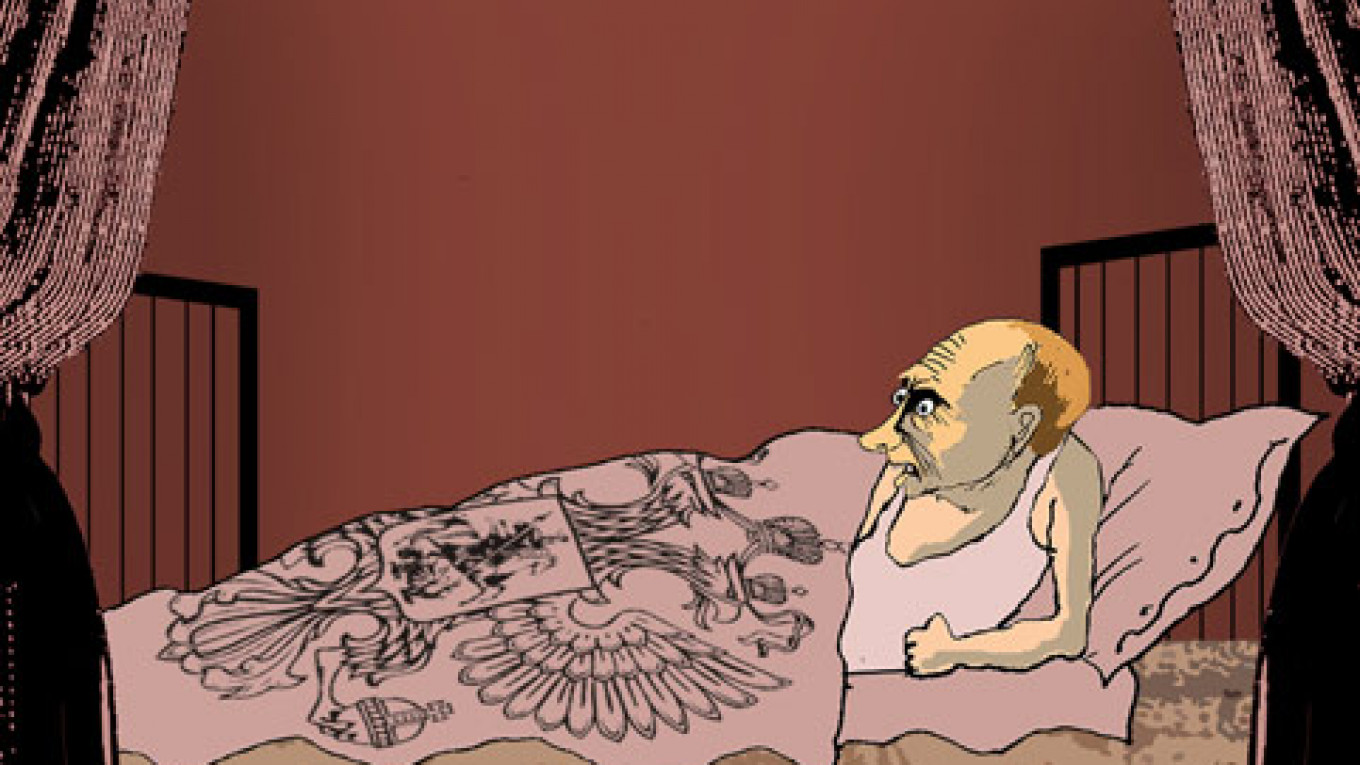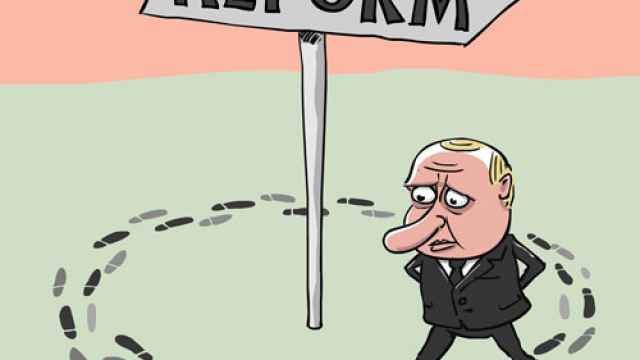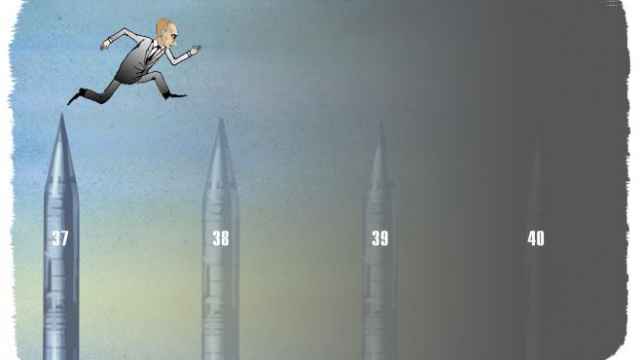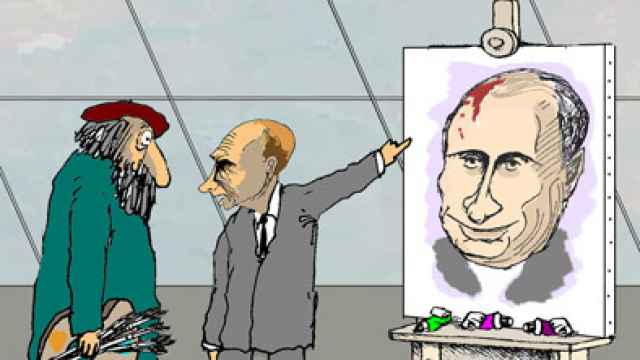A video appeared on the Internet several days ago in which bearded men from the Islamic State declare that the North Caucasus are part of the Islamic State. In another video, commanders from North Caucasus guerrilla groups agree to join the Islamic State and recite the requisite oath.
Russians discussed various options concerning Chechnya's future back in the 1990s. Chechnya first declared its independence in 1991 and twice fought for it — not without some success. However, the average Russian is always inclined to look at things through the prism of conservative politics.
Even while Russian soldiers were dying on the streets of Grozny, Muscovites sitting in their kitchens or bars would lightly curl their lips and agree that Russia could let the North Caucasus go, but would inevitably add: "But what good are the North Caucasus without Russia?"
Indeed, a look at the map always showed that the North Caucasus was in relative safety. From the conservative Soviet point of view, real danger lies in the possibility of some other power snatching away a piece of territory. But who would try to encroach on a nuclear power? And from where would they do it? After all, over the mountains lie Georgia and Azerbaijan. Are Turkey or Iran a threat? They might cast a covetous glance now and then on the Caucasus, but that is about the extent of it.
In short, even if things were not going smoothly within North Caucasus, the region needn't have worried about its territorial integrity: nobody seemed to have any designs on it.
And then, just last week, something happened that hadn't occurred in a very long time. A political entity lacking the status of a full-fledged state or recognition as a participant of the world community, but with sufficient influence to remain on television screens and newspaper headlines for months on end, announced that it claims a part of Russian territory as its own.
The Islamic State is not recognized by anyone as a legitimate structure, and yet no one has the audacity to say it isn't, either. And not only has it laid claim to a part of Russia's territory, but there are people living there who have said: "Yes, that is exactly what we want. We are ready to defend this idea with arms."
Under different circumstances, it might have been possible to simply ignore such pronouncements. A few commanders from the North Caucasus guerrilla underground represent a mere handful of malcontents and their equally scant number of followers — all of whom are already under surveillance by the Federal Security Service and military intelligence. If Russia's domestic affairs were more or less in order, it could blithely ignore those threats.
However, Russia's domestic affairs are not in order. According to the National Anti-Terrorism Committee, 5,000 Russians are fighting with the Islamic State in the Middle East. As of the last few months, that figure makes Russia the largest supplier of manpower to the Islamic State among non-Islamic countries.
Strictly speaking, now that the Islamic State has declared the North Caucasus as its own province, its supporters have no need to travel to distant Syria or Iraq in order to fight. Right at home they have hundreds of like-minded people who would like nothing more than to go to war for Islam.
Until now, only one thing was stopping them — the great distance they had to travel to reach Islamic State forces. Now they can simply grab a gun and stroll just beyond the limits of their village — already ordinary behavior for that region.
In part this is because the North Caucasus has de facto become a region where Russian law and the influence of the Russian state are applied only unevenly. In general, a state can be defined as such whenever a legitimate government is capable of establishing rules of conduct and can demand their execution under the threat of force.
There are regions in the North Caucasus that have withdrawn from such a system and set up virtual enclaves, places where the authorities apply force only occasionally at best, and where those who apply that force must first leave their heavily fortified, fortress-like bases and travel in armored vehicles.
And even if a legitimate government does exist, under such conditions its ability to apply force or influence becomes so limited that the very existence of the state comes into question. When that happens, the ominous statements made by bearded outlaws sitting in a desert 700 kilometers from Makhachkala — which is, in fact, closer than Sochi or Moscow — cease to be idle threats.
That reduces the state to some sort of quasi-state. Of course, the fact that citizens of that state can apply for disability benefits or receive passports enabling them to travel, makes the Russian presence in the Caucasus somewhat less ephemeral than the Islamic State. But on the whole, the gradual erosion of Russia's presence and influence in the North Caucasus plays into the hands of those who argue: "Since things haven't worked out so well with Russia, why not try the Islamic State?"
Something has gone wrong in Russia: people have lost their sense of solidarity with the country, a sense of allegiance to the flag. The imam of the Voronezh mosque, a man that Russians might call a "traditional Muslim," posted information on social networks that he had traveled to Syria to fight against the regime of President Bashar Assad. However, the Kremlin considers Assad a leader who is fighting a justified war against bandits and terrorists. But isn't that imam a part of the Russian nation?
Those Russians who believe that President Vladimir Putin is the be-all and end-all and those who hate Putin are like two different peoples. In a sense, the first group carries a national flag with Putin's image on it, while the second carries a similar flag, but with a red line through the picture.
One advocates the free market, another a return to communism, a third simply wants to earn money without excessive government interference. Still another supports the Islamic State while another opposes it. One is alarmed at the legalization of same-sex marriages in the United States even though his own "acceptable" family is falling apart. And some are doing so well that they could care less about politics, Putin or the Islamic State.
Each of these groups is like a separate nation, a different people, and they have not yet managed to forge a single country for all. Each group holds views of what is proper and acceptable that are too much at odds with the others to be reflected by a single national flag.
One group wants to join the Islamic State, the other the EU. But a way out exists for both groups: If you can't ensconce the Islamic State in your own backyard, you can always join your brethren in the Middle East. If you can't integrate with Europe, just retire to your dacha and plant enough flowers to imagine you live in Holland.
It might be a hackneyed metaphor to call a country a common home for all, but as long as discord reigns in your home, one group after another will continually claim rights to your room.
And if you, like Russia, claim to be the hot shot of the neighborhood and have even managed to alienate your neighbors and the local sheriff — who would ordinarily help you fight back the gangs on your street — you will find yourself in an unenviable position when it turns out that the Islamic State lays claim to your basement or to that new room you have added.
Ivan Sukhov is a journalist who has covered conflicts in Russia and the CIS for the past 15 years.
A Message from The Moscow Times:
Dear readers,
We are facing unprecedented challenges. Russia's Prosecutor General's Office has designated The Moscow Times as an "undesirable" organization, criminalizing our work and putting our staff at risk of prosecution. This follows our earlier unjust labeling as a "foreign agent."
These actions are direct attempts to silence independent journalism in Russia. The authorities claim our work "discredits the decisions of the Russian leadership." We see things differently: we strive to provide accurate, unbiased reporting on Russia.
We, the journalists of The Moscow Times, refuse to be silenced. But to continue our work, we need your help.
Your support, no matter how small, makes a world of difference. If you can, please support us monthly starting from just $2. It's quick to set up, and every contribution makes a significant impact.
By supporting The Moscow Times, you're defending open, independent journalism in the face of repression. Thank you for standing with us.
Remind me later.






